The Bernese Mountain Dog is a large, hardy working breed originally from the Swiss Alps. Reaching weights of 80 – 115 lbs at maturity, they have substantial caloric needs to support their large frames and active dispositions. As puppies and adolescents under 18 months old, high quality protein sources should comprise 22% of their diet to aid growth and development. Adult Bernese Mountain Dogs require slightly less protein at 18%, but still need ample energy from quality carbohydrates, fats and protein.
While commercial kibbles provide balanced nutrition, natural homemade diets allow you to control exactly what ingredients your Bernese eats. Home cooking may also accommodate dogs with allergies or intolerances. When formulating homemade recipes, be sure to consult your veterinarian and canine nutritionist to ensure meals contain essential vitamins, minerals and nutrients.
Bernese Mountain Dog Diet Chart
|
Age |
Daily Food Quantity (Cups) |
Kilocalories (Per day) |
Protein |
Fats |
|
2 months |
1.5 – 1.75 |
405 – 450 |
22% |
8% |
|
3 months |
1.75 – 3 |
675 – 787.5 |
22% |
8% |
|
4 – 5 months |
3 – 4 |
990 – 1,417.5 |
22% |
8% |
|
6 – 8 months |
4 – 5 |
1,417.5 – 2,025 |
22% |
8% |
|
9 – 12 months |
5 – 6 |
1,800 – 2,250 |
22% |
8% |
|
13 – 18 months |
5 – 6 |
1,800 – 2,250 |
22% |
5% |
|
19 – 24 months |
4 – 5 |
1,417.5 – 2,025 |
18% |
5% |
|
2 – 3 years |
3 – 4 |
990 – 1,417.5 |
18% |
5% |
|
4 – 5 years |
2.5 – 3.5 |
812.5 – 1,162.5 |
18% |
5% |
|
6 – 8 years |
2 – 3 |
675 – 990 |
18% |
5% |
|
9-+ years |
1.5 – 2.5 |
405 – 812.5 |
18% |
5% |
Quality Oils to Include in Homemade Bernese Diets
Adding healthy oils like coconut, olive, sunflower, sweet almond and jojoba oils to your Bernese’s meals provides concentrated calories and essential fatty acids. In puppy and adolescent diets, around 8% of calories should come from fats. For adult maintenance, lower fat to 5% of the daily caloric intake. Here are some of the top oils to incorporate:
Coconut Oil
- Rich in lauric acid, which contains antiviral and antibacterial properties
- Boosts metabolism and energy
- Improves skin and coat health
- Start with 1 tsp per 10 lbs of body weight
Olive Oil
- High in monounsaturated fats, omega3s, and antioxidants
- Reduces inflammation
- tsp provides 35 calories
- Best for light sautéing or drizzled over food
Sunflower Oil
- Rich source of linoleic acid, an omega-6 fatty acid
- Very high in vitamin E to support immunity
- Neutral flavor good for baking treats
- 1 tbsp provides 120 calories
Sweet Almond Oil
- Loaded with vitamin E, magnesium, and zinc
- Hypoallergenic for dogs with sensitivities
- Absorbs well into skin and coat when applied topically
- 1 tsp provides 40 calories
Jojoba Oil
- Mimics dog’s natural sebum oil on skin
- Soothing and moisturizing for dry, irritated skin
- Antimicrobial effects
- Use sparingly since it is calorie dense
Crafting Balanced Homemade Bernese Meals
When preparing homemade meals for your Bernese Mountain Dog, follow basic calorie guidelines based on their weight and life stage. Incorporate carbohydrates, proteins, fruits/veggies, and oils into each recipe. Here are some recipe ideas to try:
Puppy Bernese Recipes
Slow Cooker Chicken and Rice
- Chicken thighs or breast
- Brown or white rice
- Carrots, peas, sweet potato
- Chicken broth
- Olive oil, coconut oil
Turkey and Oatmeal
- Ground turkey
- Oats or oatmeal
- Blueberries, pumpkin puree
- Greek yogurt
- Sunflower oil
Wholesome Beef and Barley
- Lean ground beef
- Pearled barley
- Broccoli, green beans
- Beef bone broth
- Sweet almond oil
Adult Bernese Recipes
Braised Chicken and Quinoa
- Boneless chicken thighs
- Cooked quinoa
- Spinach, kale, zucchini
- Garlic, parsley
- Olive oil
Hearty Lentil Stew
- Brown or green lentils
- Carrots, celery, peas
- Potatoes, sweet potatoes
- Beef stock
- Coconut oil
Savory Fish and Brown Rice
- Wild caught salmon, cod or tuna
- Brown rice
- Asparagus, bell peppers, okra
- Fish stock, coconut milk
- Jojoba oil
Transitioning Your Bernese to a Homemade Diet
Shifting your Bernese Mountain Dog to a homemade diet should be done gradually over 710 days. Here are some tips for a smooth transition:
- Slowly incorporate the new food, substituting 25% on day 13, 50% on day 46, and 75% on day 78.
- Keep a close eye on stool consistency, energy levels, appetite, and any signs of GI upset.
- Ensure your Bernese is drinking adequate water, as homemade diets tend to be lower in moisture.
- Pay attention to your dog’s behavior and appearance of skin, coat, eyes and gums. Address any concerns promptly.
- Work closely with your vet throughout the transition in case any diet adjustments need to be made.
With patience and monitoring, soon your Bernese can reap the rewards of a nutritionally balanced homemade diet. Be sure to discuss your meal plans with your vet and canine nutritionist. Feel free to contact us if you have any other questions on feeding your Bernese Mountain Dog!
Source:


